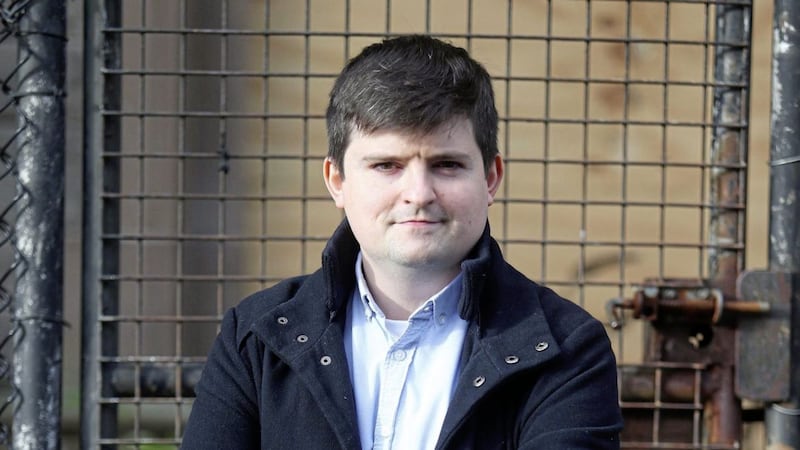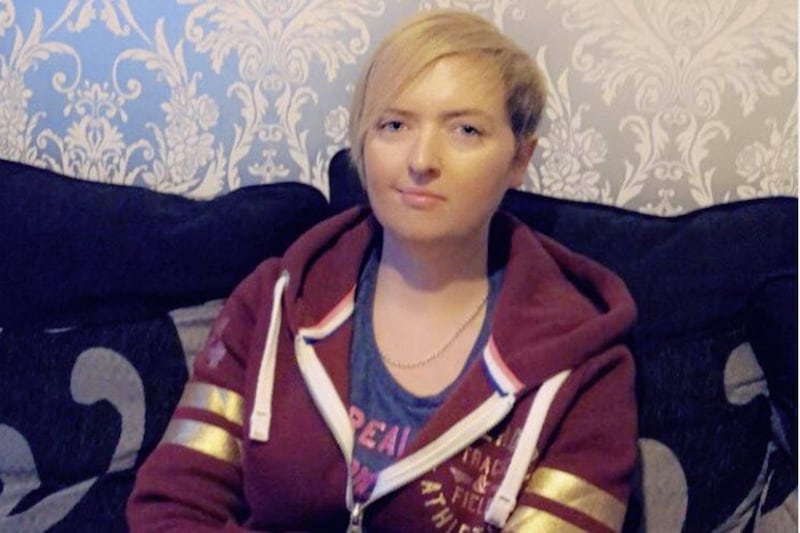LEARNING to talk, like learning to walk, is never completely smooth and does not happen straight away. Young children often stop, pause, start again and stumble over words when they are learning to talk.
Between the ages of two and five years, it is normal for a child to repeat words and phrases, and hesitate with when they are sorting out what to say next. However, for some the struggle is more persistent.
Figures suggest that 5 per cent of people will stammer (dysfluency) during some part of their lives, with prevalence higher in children under the age of six.
It is not known exactly why a child stammers; it is likely that a combination of factors is involved, including genetics and neurological conditions. It is about four times more common in boys than in girls.
This weekend the Royal College of Speech and Language Therapists NI will be holding their biannual conference in Templepatrick, where the focus is on the transformational power of speech and language therapy.
Guest speaker at this year's pre-conference dinner is David McCann, political commentator, lecturer and deputy editor of the news and opinion website Slugger O’Toole.
David is grateful that his parents realised his need for speech therapy as a young age and admits he would not be able to provide election analysis on television and radio, or stand up in front of 80 students in his capacity as a part-time politics lecturer at the University of Ulster if he hadn’t received speech therapy as a child.
“I remember starting primary school and having a stammer. I was very shy and wouldn’t communicate unless I had to and when I did I would stumbled and trip over words,” recalls the Belfast man.
He remembers a pivotal moment when he was aged just five or six, which would help transform his life for the better.
“One day I was sitting in front of the TV with my dad and I said something to him like 'Why can't my voice be better?' From that moment my mum and dad decided to get me help."

David, now 30, was referred to speech and language therapy, where he attended for a number of months.
“The speech and language therapist talked to me and she saw there was a lot of anxiety and shyness and naturally enough the more anxious you are the more likely likely you are to trip over words.
“She also asked my family to come to the centre and observed myself, my mum, dad, brother and sisters interacting in the play area for about 45 minutes.
“One thing she found was that my family were asking me too many questions. She also said I need to speak when I feel comfortable and other people were forcing me to speak, rather than me choosing to speak myself."
Doing exercises and implementing these changes saw his condition slowly and gradually improve and he went on to star in school plays and give presentations.
While he no longer stutters, David admits he does still get anxious speaking from time to time and still uses techniques he learnt at speech therapy in his daily life.
“I remember being told that if I was feeling nervous about going into school or talking to my teacher or friends, I should think ahead about what I wanted to say. More than 20 years later that advice has stayed with me and I would do that before I do interviews on radio or take a lecture.
“Eighty per cent of what I do depends on being able to communicate with others. If I had not got that early intervention speech therapy, a lot of opportunities and doors would have been closed to me and I wouldn’t be doing what I’m doing now.”
Having a speech difficulty can of course impact on a person’s emotional and psychological health and David feels strongly that if, and when, a Stormont government does reform that resources for early years intervention are prioritised.
“Every language expert says the best time to teach child a new language is between the ages of three and seven. Likewise, there needs to be an emphasis on developing good communication skills in general in early age.”
He also stresses that awareness of speech difficulties should also be part of teacher-training to increase understanding among all children.
“I remember starting school as a four-year-old and the kids were asking me 'Why do you speak funny?' They weren’t being cruel, they were just curious."
With over 3,000 children in Northern Ireland currently awaiting speech and language therapy, Alison McCullough MBE, Head of the Royal College of Speech and Language Therapists NI office, highlights the need for more resources.
"Extensive research shows that, if it is not dealt with early on, stammering and its effects, such as being bullied or ridiculed, can lead to anxiety, depression and feelings of isolation, not to mention having a huge impact on educational and employment outcomes," she says.
"Outcomes can be greatly improved if support is accessed in the early years. For this to happen we need timely access to speech and language therapy to ensure that everyone receives the help they need as soon as possible."
The RCSLT are currently working the Department of Health to carry out a workforce review.
"It has already highlighted that one in six speech and language therapy posts are vacant and this is having a significant impact on waiting times – illustrating the need for greater investment in training and developing our workforce," Alison adds.
HELPFUL TIPS FOR PARENTS
1. Be interested in what your child says, not how they say it. Try to maintain natural eye-contact when they are having difficulty talking and don't finish their sentences.
2. Avoid labelling the difficulty as stammering. You could use expressions like "bumpy speech" or "getting stuck", or ask your child for their own descriptions.
3. Slow down your own rate of speech when you talk to your child. Pausing for a second before you answer or ask a question can also help them to feel less rushed.
4. Reduce the number of questions you ask. Always give your child plenty of time to answer one question before asking another.
5. Everyone in the family should take turns to talk. This will reduce the amount that your child is interrupted, or that he or she interrupts others.
6. Try to avoid a hectic and rushed lifestyle. Stammering can increase when your child is tired. Children who stammer respond well to a routine and structured environment.
(Source: the British Stammering Assocation)








